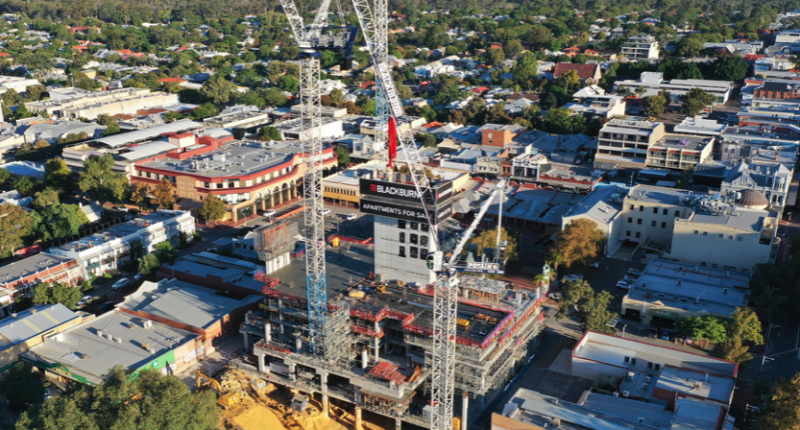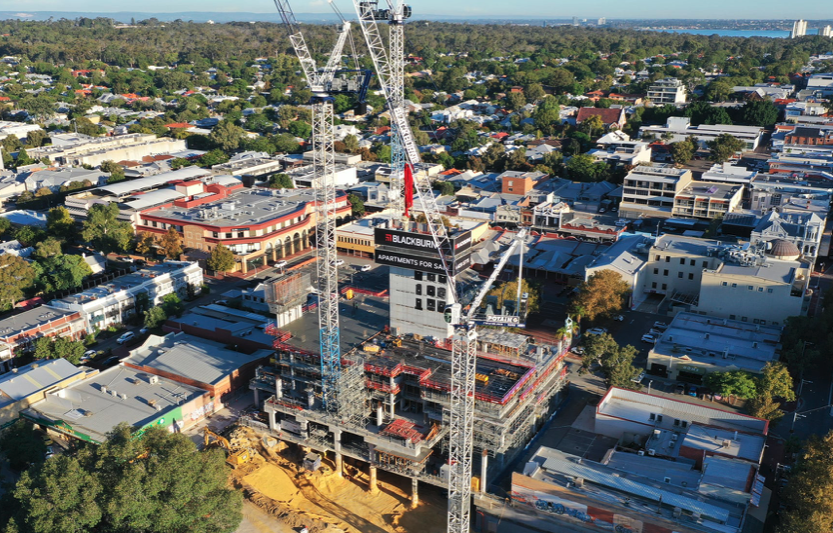- The Western Australian Government has announced an extension of the off-the-plan apartment purchase rebate at a reduced rate in the State Budget
- First-time buyers paying $450,000 for an apartment would pay about $3838 in duty without a rebate, with the rebate cutting this amount to $1919.50
- UDIA WA CEO Tanya Steinbeck says the rebate has helped to get more new apartment projects off the ground, attract investors and create jobs
- The previously announced $875 million social housing package aims to bring on board around 3300 new properties in 2022-23 financial year
The Western Australian State Government announced a record-breaking $5.6 billion surplus budget yesterday.
In the Budget, Premier Mark McGowan’s Labor Government announced it would extend the transfer duty rebate for new residential units or apartments in a multi-tiered strata development for a further two years, albeit at a reduced rate.
Buyers who sign pre-construction contracts between October 24, 2021, and October 24, 2023 (inclusive), to acquire a new residential unit or apartment in a multi-tiered strata development will now be eligible for a 50 per cent transfer duty rebate, up to $50,000.
First-time buyers paying $450,000 for an apartment would pay about $3838 in duty without a rebate, with the rebate brining this amount down to $1919.50.
Pre-construction contracts for homes in multi-tiered strata projects are now eligible for a 75 per cent refund, up to $50,000, until October 23, 2021.
The rebate extension is included in the State Budget for 2021-22, bringing the total number of measures implemented by the McGowan Government to increase housing availability to $26.2 million.
Finance Minister Tony Buti said buyers wanting to access high-amenity locations, such as communities surrounding the new METRONET lines, would benefit from the rebate.
Property Council WA executive director Sandra Brewer said the property industry welcomed the extension of the stamp duty rebate.
“The rebate’s extension will increase apartment supply and help WA to maintain its affordability edge, which we know is important for people looking to move to WA,” she said.
UDIA WA CEO Tanya Steinbeck said the rebate would help to get more new apartment projects off the ground and attract investors while creating jobs.
“We hope that continuing the scheme will also have a positive impact on the current low vacancy rate,” she said.
However, Ms Steinbeck said she would like to see the State Government review stamp duty and introduce a broad-based tax system.
Ms Brewer said the property industry also supported measures to diversify WA’s economy, including funding a $50 million Industrial Land Fund to help unlock emerging industries.
She also welcomed the previously announced $875 million social housing package.
The funding, most of which will be spent on new social housing in the 2022-23 financial year, aims to bring on board around 3300 new properties.
However Ms Steinbeck said that without addressing the current skills shortage it would be difficult to deliver the homes that needed to be constructed within set time frames.
Another positive in this year’s Budget is the allocation of $120 million in funding toward regulatory reform, according to Ms Steinbeck. She said the current complex environmental approval system added to projects costs and delays.
Ms Brewer welcomed the inclusion of a $50 million industrial land fund, which she said would help unlock industrial land and bring it to market more quickly.
The Budget also extended the building bonus requirement for construction to start within 12 months to 18 months.







